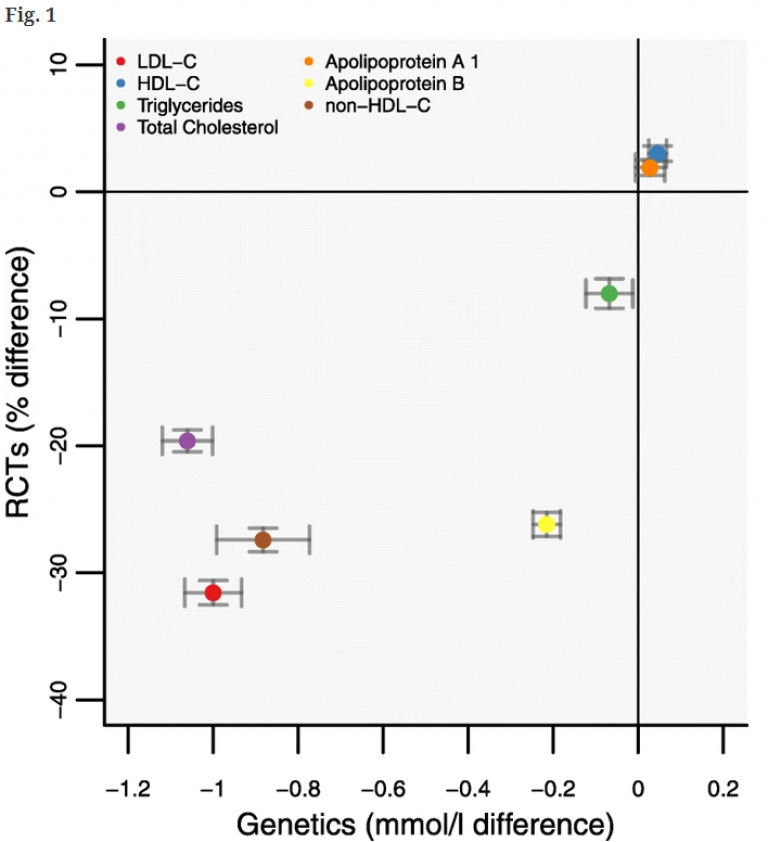Genetic variants in PCSK9 recapitulate the effects of therapeutic inhibition of PCSK9
31 October 2019
“Phenome-wide association analysis of LDL-cholesterol lowering genetic variants in PCSK9” published by BMC Cardiovascular Disorders today.

A group led by Dr Floriaan Schmidt, the UCL Institute of Cardiovascular Science, and including researchers from the UCL Institute of Health Informatics (Professor Spiros Denaxas, Dennis Valentine, Dr Caroline Dale, Dr Rui Providencia E. Costa, Professor Harry Hemingway and Professor Folkert Asselbergs) characterised the phenotypic consequence of genetic variation on LDL-cholesterol levels.
Treatments such as statins and ezetimibe reduce the risk of major coronary events and ischemic stroke by lowering low density lipoprotein-cholesterol (LDL-C) levels. Loss-of-function mutations in PCSK9 are associated with lower LDL-C and a reduced risk of coronary heart disease. The group characterised the phenotypic consequence of genetic variation at the PCSK9 locus in comparison with recent trials of pharmacological inhibitors of PCSK9 such as antibodies, which received market access in 2015.
From their sample of 320,170 individuals, the group found that the PCSK9 gene centric score (GS) (comprising 4 SNPs) associations with plasma lipid and apolipoprotein levels were consistent in direction with treatment effects. The PCSK9 GS was associated with a lower risk of myocardial infarction (MI), which was directionally consistent with results from placebo-controlled PCSK9 inhibition trials (seven were included in this study). No genetic associations were observed for cancer, heart failure, atrial fibrillation, chronic obstructive pulmonary disease, or Alzheimer’s disease. However, the GS was associated with Type 2 Diabetes Mellitus, higher body weight and fasting glucose 0.09 mmol/L.
In conclusion, the main findings reported were that the genetic variation at the PCSK9 locus recapitulates the effects of therapeutic inhibition of PCSK9 on major blood lipid fractions and MI.
To read the full paper, visit the BMC Cardiovascular Disorders website.
The paper’s full citation: Schmidt, A.F., Holmes, M.V., Preiss, D. et al. Phenome-wide association analysis of LDL-cholesterol lowering genetic variants in PCSK9. BMC Cardiovasc Disord 19, 240 (2019) doi:10.1186/s12872-019-1187-z
 Close
Close

